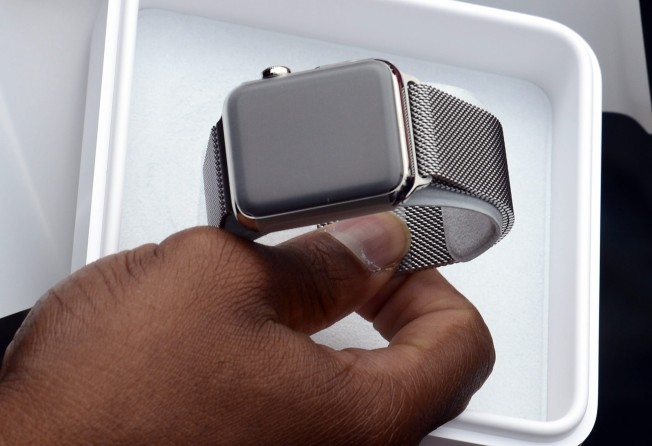Apple parts maker AAC shrugs off delay report, sees strong growth

AAC Technologies, a leading supplier of miniature audio components for the iPhone, aims to drive more business from its non-acoustic product line this year, and does not see reports that its products caused a delay to shipments of the Apple Watch as an obstacle to growth.
The Hong Kong-listed company’s reputation took a hit from a report in the Wall Street Journal at the end of April that haptic motors it supplied were defective. Haptic technology recreates tactile feedback, such as vibrations, for users of a smartphone or smartwatch.
Speculation has swirled since about AAC’s position as a supplier to the iPhone and Apple Watch. AAC executive director Richard Mok Joe-kuen, the Shenzhen-based firm’s chief financial officer, declined to comment on the reports and the speculation.
“We have never responded to media reports about specific projects with customers. It is more important for us to focus on our technology capability,” Mok said.
He pointed to record first-quarter sales and earnings as showing positive prospects for its strategy.
In a regulatory filing, AAC said its net profit in the first three months of the year rose 25 per cent to 606 million yuan (US$98 million), up from 487 million yuan a year earlier.
Sales of haptic motors and other non-acoustic products, including radio frequency micro-electromechanical systems (RF MEMS) used as antennas in smartphones, accounted for 38 per cent of total sales in the quarter.
Audio components -- including miniature speaker boxes, receivers and speakers -- made up 52 per cent.
Revenue grew 24 per cent to 2.305 billion yuan, from 1.854 billion yuan the previous year. Sales to customers in mainland China increased more than 10 per cent year on year.
Chief executive Benjamin Pan Zhengmin expected the company to win a higher market share in the non-acoustic segment, while solidifying its leadership in the miniature audio components segment.
"Our strong design and production capabilities ... enable us to provide solutions that fit diverse needs from customers," Pan said.
AAC has raised its capital spending plan this year to 2 billion yuan, up from its previous guidance of 1.5 billion yuan, as it targeted spending on non-acoustic products.
Daiwa Capital Markets analyst Kylie Huang described the concerns about AAC's position in Apple's supply chain as “overdone”.
“We acknowledge the production issue with the Apple Watch, but view it as a short-term hiccup and believe AAC’s position in the Apple supply chain remains solid,” Huang said in a research note published on May 12.
“For haptic, we expect AAC to have a 30 per cent order share in the Apple Watch and a 50 per cent order share in new iPhones.”
A research note from Jefferies, however, pointed out that AAC's sales and earnings last quarter missed market analysts’ consensus forecast, which had estimated a net profit of 694 million yuan and revenue of 2.396 billion yuan.
"We believe the overall weakness of Chinese smartphone customers, the Apple Watch glitch and [AAC's] overly optimistic guidance led to the discrepancy," the Jefferies note said.
A report released by market research firm IDC on Monday said mainland China's smartphone market last quarter contracted by 4.3 per cent to 98.8 million units, down from 103.2 million a year ago.
“Smartphones are becoming increasingly saturated in China,” said Kitty Fok, managing director at IDC China.
The top-five smartphone suppliers on the mainland last quarter were Apple, Xiaomi, Huawei Technologies, Samsung Electronics and Lenovo. All of them are AAC customers.
AAC also announced on Monday that it has acquired California-based WiSpry for an undisclosed amount. WiSpry is a leading supplier of RF MEMS.